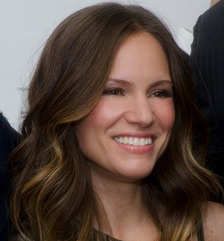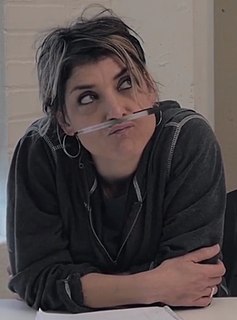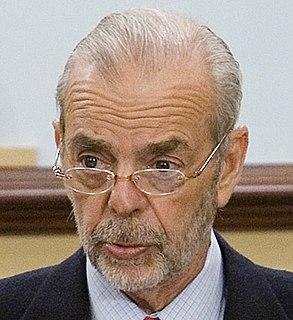A Quote by Meghan Daum
What I think is important about essayists - about the essay, as opposed to a lot of personal writing that kind of finds its way into public view - is that the material really has to be presented in a processed way.
Related Quotes
What I think is important about essayists, about the essay as opposed to a lot of personal writing is that the material has to be presented in a processed way. I'm just not interested in writing, "Hey, this is what happened to me today." You get to a place that has very little to do with your personal experience and talks about some larger idea or something in the culture. I don't think you can get to that unless you have had a lot of time to gestate and maybe if I was taking a lot of notes while stuff was going on, I wouldn't be able to get to that place as easily.
I believe that the greatest music is storytelling anyway, in a heightened medium. So I write a lot of music, and I play a lot with my guitar, I still sing a lot, but now I'm more personal about it than public, in a way. I think there will be a time where I'd like to bring the singing back into some of my performances. It all depends if the material's right, if the story's right, if it's my kind of taste in music, as well. It means so much to me. We all know how affective music can be, I just want to make sure when I do it, I'm doing it because I actually feel it and I care about it.
People tend to think of gentrification in terms of race because it's presented that way, and I think it's presented that way because in poor cities that's what's really going on. Beyond that, I think it's presented that way as a way for the people who are really pushing it to make it just a black problem, so people don't care.
For one thing, I don't think art needs to be about suffering; sometimes it really seems like it's only the art about pain that is interpreted as profound, and in my work for years I've really tried to deal with subjects that are substantial, not just fluffy, but presented in a more playful, approachable kind of way.
Now the truth is, writing is a great way to deal with a lot of difficult emotional issues. It can be very therapeutic, but that's best done in your journal, or on your blog if you're an exhibitionist. Trying to put a bunch of *specific* stuff from your personal life into your story usually just isn't appropriate unless you're writing a memoir or a personal essay or something of the sort.
I think all writing is about writing. All writing is a way of going out and exploring the world, of examining the way we live, and therefore any words you put down on the page about life will, at some level, also be words about words. It's still amazing, though, how many poems can be read as being analogous to the act of writing a poem. "Go to hell, go into detail, go for the throat" is certainly about writing, but it's also hopefully about a way of living.
In a way, I see my fiction as having moved in that direction - and the characters as dealing simultaneously with their personal history and with the present in which they are trying to make their way. So that the books are simultaneously about public and interior events. And I am having a great time getting confused and crazed writing about them.
I think polling is important because it gives a voice to the people. It gives a quantitative, independent assessment of what the public feels as opposed to what experts or pundits think the public feels. So often it provides a quick corrective on what's thought to be the conventional wisdom about public opinion. There are any number of examples that I could give you about how wrong the experts are here in Washington, in New York and elsewhere about public opinion that are revealed by public opinion polls.
It's kind of a collaborative relationship. Westworld requires the investment of the people watching, and that's what I love about it. It changed my life. When I read the script, I was like, 'This is going to change the way I think about my own life. The way I see myself, the people around me, and the way I choose to exist.' That's what great material does. It transcends just being pop cultural entertainment, and actually involves the mind. It's really fun, and when I see the reactions and theories it makes me really excited. That's why I act.
A key text for me is James Baldwin's essays. And, in particular, his essay Stranger in the Village. It's a text that I've used in a lot of paintings. The essay is from the mid-'50s, when he's moved to Switzerland to work on a novel, and he finds himself the only black man living in a tiny Swiss village. He even says, "They don't believe I'm American - black people come from Africa." The essay is not only about race relations, but about what it means to be a stranger anywhere.


































